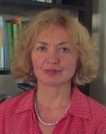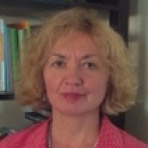- Home
- SEE views
- Sustainable Development at the University - Are We Ready for an Interdisciplinary Journey into the Future?

After more than three decades of official promoting of sustainable development in relevant international documents, different approaches and definitions of the concept have entered a new review process and research era, titled ‘Sustainability 2.0’. Despite the variety of scientific definitions and criticism of some theories, it seems that from the strategic point of view, a high level of agreement has been achieved when it comes to the significance of this concept for the future global development. The world development framework has been redefined by the new UN development agenda for the post 2015 period. The Open Working Group of the General Assembly proposed 17 Sustainable Development Goals including “to ensure inclusive and equitable quality education and promote lifelong learning opportunities for all” until 2030.
Everyone seems to agree when it comes to importance of education in achieving sustainable development goals, and the role played by universities. In the 1990s, many higher education institutions started including sustainability into their curricula. Their programs were, and still are, based on transformative approach bringing together theory and practice, researching new ways of application of sustainability inside as well as between individual scientific disciplines.
It is expected that education will not only enable students to develop their critical and innovative thinking but also give them an opportunity to improve their self reflextion skills. The integration of the concept of sustainability into the syllabi at all educational levels is a complex process. It is not only about “adding” content ABOUTsustainable development into curricula; as most authors contend today, it requires systemic restructuring of individual subjects and relations among them, from the perspective of education FOR sustainable development, which entails development of critical thinking, responsibility and an urge to act, rather than passing pure knowledge. In this respect, instead of traditional divisions and disciplinary specializations, a cross-disciplinary approach is considered to be the most fitting model of learning and, hence, also teaching.
No matter how important, changes in the curricula constitute only one step on the path of integrating sustainability into the higher education. Launching new, valuable research, training academics and other stuff, as well as closer cooperation with the students should also be included in this process. Furthermore, it is vital to promote strengthening of institutions (from strategy planning to establishment of dedicated bodies for sustainable development at individual faculties and universities in general); advancement of operative functioning of universities (from financing to public procurements, recycling, energy saving, etc.); and cooperation with the local community in accordance with the principles of sustainable development.
When reviewing the process of incorporation of sustainable development into the study programs and functioning of the University of Belgrade, one can observe this concept’s fairly rapid inclusion into the scientific and technical study programs (Biology, Chemistry, Geography, Forestry, Agriculture, Technology and Metallurgy, Architecture, Organizational Sciences), on the one hand; and, on the other, much more modest integration into the social sciences (Political Science, Law, Security Studies, Sociology). Shifts in syllabi are chiefly initiated by academics themselves and are rarely accompanied by other segments of sustainability promotion – such as organized exchange of experiences and research findings, or development of projects and campaigns encouraging “sustainable” behaviour of all actors inside and outside of the University.
For more efficient and effective integration of sustainability into higher education, it is also essential that teachers reflect on their practice, evaluating if it is truly based on holistic approach, and if it is leading towards increased awareness and responsibility of students and of academic and wider community about the consequences of (un)sustainable behaviour. Moreover, they need to strive to “open doors” for (interdisciplinary and intergenerational) cooperation with their partners and co-workers. However, even that is not sufficient. In order to be able to act, the academics require systemic approach, institutional support, and generally favourable atmosphere – at the University level as well as in their broader environment. They need to be able to share their works with the international scientific and research community. Our country has committed to these efforts by signing international and projecting national strategies. Bearing in mind the new global development goals, undertaking these steps in practice represents an imperative for the future.
Changes made in the Sociology and study program of Andragogy, the Department of Psychology’s projects promoting integration of sustainability into the higher education, and the experiences of our colleagues from the Faculty of Political Science were introduced at the promotional event “Open Doors for Sustainable Development” held in the Faculty of Philosophy on March 25, 2015. This presentation was organised as a part of the global initiative "World Sustainable Development Teach In Day" (http://world-sustainability-day.net/).Our contributions helped to facilitate a productive discussion among all participants and attendees on the possibilities of integration of sustainability into all domains at the University of Belgrade.
Violeta Orlović Lovren,
Department of Pedagogy and Andragogy
Faculty of Philosophy, University of Belgrade

 Author:
Author:





